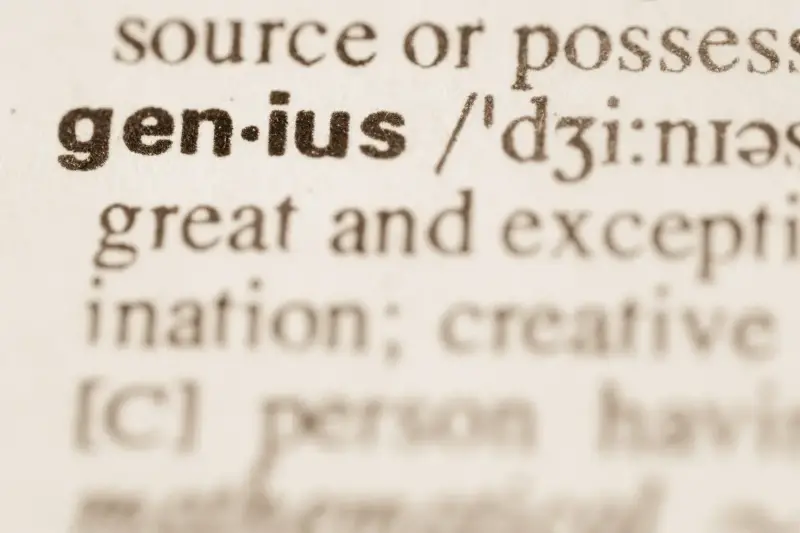When we think of geniuses, it’s tempting to picture someone buried in books, able to memorise facts or effortlessly ace complicated mathematics. Yet, history and science reveal a far more fascinating picture. Genius isn't simply measured by a high IQ. In fact, many of the world's most extraordinary minds possess a unique blend of traits that set them apart, igniting their curiosity and fuelling revolutionary ideas. Let’s explore the surprising characteristics that often define geniuses—and why real brilliance has lots more layers than meets the eye.

Curiosity: The Spark That Ignites Genius
Perhaps the most underappreciated trait of geniuses is their insatiable curiosity. Albert Einstein famously claimed, “I have no special talents. I am only passionately curious.” This relentless drive to understand "why" and "how" leads geniuses down uncharted paths, questioning conventional wisdom and seeking new solutions where others see none.
Curiosity encourages active learning, exploration, and even play. Geniuses rarely outgrow their childlike wonder about the world; instead, they embrace it, propelling themselves toward discovery in ways that standard intelligence tests simply can’t measure. Their questions are the seeds from which major inventions and fresh art often sprout.
Emotional Intelligence: The Hidden Power
It may seem at odds with the traditional view of isolated, moody intellects, but many geniuses actually possess remarkable emotional intelligence (EQ). This ability to understand and manage emotions—both their own and others’—helps them collaborate, communicate their ideas clearly, and inspire those around them.
Emotional intelligence also boosts resilience. Geniuses throughout history, from Marie Curie to Steve Jobs, have weathered criticism, failure, and even ridicule. Their EQ enabled them to adapt, persevere, and turn setbacks into stepping stones.

Imagination and Creativity: Thinking Outside the Box
Genius isn’t limited to logic and reason. Major breakthroughs often begin with a leap of the imagination. Leonardo da Vinci drew designs for flying machines centuries before aeroplanes existed. Mathematician Srinivasa Ramanujan visualised infinite numerical patterns in his mind long before formal proof.
This ability to think in unconventional ways is closely tied to creative openness. Geniuses aren’t afraid to make mistakes or challenge norms. In fact, many are avid experimenters—dabbling in diverse interests, mixing disciplines, or using their creativity in unfamiliar ways. This relentless innovation is what propels humanity forward.
Obsessive Drive and Grit
One surprising characteristic of many geniuses is not just their talents, but the obsessive drive behind them. Psychologists refer to this as "grit"—a passion and perseverance for long-term goals. Think of Thomas Edison’s relentless trials before inventing the lightbulb, or J.K. Rowling’s years spent refining Harry Potter in coffee shops.
Genius is often less about effortless brilliance and more about dogged determination. These individuals are relentless learners and hard workers, dedicating countless hours to their craft or curiosity, sometimes to the point of obsession. This commitment is what often turns raw potential into world-changing results.

Sensitivity and Observation Skills
Surprisingly, heightened sensitivity is a common denominator among many geniuses. Whether it’s noticing subtle patterns in nature, reading people’s emotions, or absorbing complex information from their surroundings, geniuses are keen observers.
Highly sensitive individuals often pick up on details others might miss. This attention to nuance can translate into new scientific insights, brilliant art, or even technological invention. In fact, the ability to see connections between seemingly unrelated things is a hallmark of genius thinking.
Adaptability and Comfort With Uncertainty
Geniuses are not just people with all the answers—they are often deeply comfortable with questions. Their adaptability allows them to navigate ambiguity, learn from new experiences, and pivot quickly in the face of unexpected challenges.
Unlike those who may become paralysed by uncertainty, geniuses often thrive amid it. Their flexible thinking helps them see possibilities and alternative solutions, making them effective problem-solvers in a rapidly changing world.
A world full of diverse minds flourishes when we recognise and nurture these less obvious marks of genius. While intelligence tests may open doors, it’s the deeper traits—curiosity, creativity, emotional intelligence, and persistence—that keep the journey worthwhile. Fostering these qualities in education and everyday life could unleash untapped genius in us all and help bridge the gap between potential and achievement, no matter where our IQ scores may lie.
